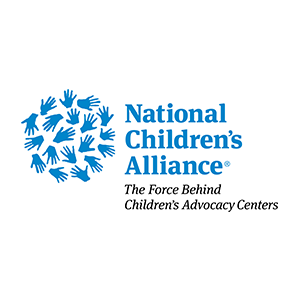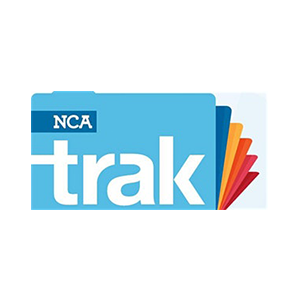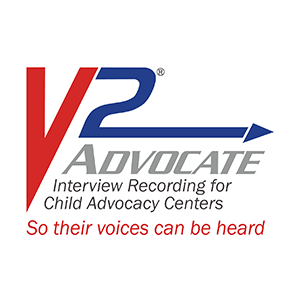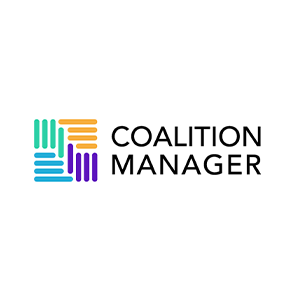
Accessing Workshops & Live Sessions
Please note, all workshop recordings will be released June 7th at 9am Eastern. The agenda below is a suggested schedule for attendees. All live sessions will take place June 7-9. Each live session will be recorded and available on-demand until September 30, 2021.
CLICK HERE to print a schedule
Tuesday, June 8, 2021
11:00 am - 12:00 pm EDT
Live Annual Membership Meeting
Overview
Meet with NCA Executive Director to review the CAC movement’s accomplishments and milestones. All conference attendees are invited and encouraged to attend.
Speaker(s)
Teresa Huizar, Executive Director, National Children's Alliance
12:00 pm - 12:30 pm EDT
Visit Town Square
Our 2021 Leadership Conference would not be possible without the support of our sponsors and exhibitors. Please take a moment to explore the Virtual Town Square and exhibit booths to learn more about these special organizations.
12:30 pm - 1:30 pm EDT
Lunch Break
1:30 pm - 2:30 pm EDT
Concurrent Session Three
Sessions 3A-3J
Track: Advocacy & Communications
Session 3A: Listen and Learn: Initiating Collaboration between Tribal Communities and CACs
Overview
Track: Advocacy & Communications
While the CAC/MDT model has been widely adopted throughout the United States, many communities in Indian Country lack resources and access to implement it. Participants in this session will be provided with an overview of the Listen and Learn process, which introduces the CAC/MDT model to tribal communities that do not have access to or utilize those resources at the local level. Presenters will describe the purpose, value, and provide examples of the Listen and Learn and present guidelines and recommendations for implementation as outlined in the “Listen and Learn: A Process for Initiating Collaboration between Tribal Communities and Children’s Advocacy Centers” published by the Southern Regional Children’s Advocacy Center.
Speaker(s)
Geri Wisner, Executive Director, Native American Children's Alliance
Patty Terzian, State Liaison, Western Regional Children's Advocacy Center
Teresa Smith, Project Director, Northeast Regional Children's Advocacy Center
Tony DeVincenzo, M.A., Training Specialist, Northeast Regional Children’s Advocacy Center
Track: Research & Innovative Practices
Session 3B: How MDTs Can Address the Systemic Needs of Youth with Problematic Sexual Behaviors
Overview
Track: Research & Innovative Practices
Multidisciplinary Teams (MDT) have long been utilized to form strategies for the sexual abuse of children by adults, but studies show that up to 40% of alleged child sexual abuse cases referred to CAC’s occur between children. MDTs often find themselves inadequately prepared to determine the varying developmental and contextual needs of adolescents that initiate problematic sexual behaviors. The focus of this training will be to examine the systemic needs of MDTs and how they can form best practices by developing policies and procedures that are empirically supported and informed.
Speaker(s)
Geoff Sidoli, MSW, LCSW, Coordinator of Mental Health Programs, National Children's Alliance
Track: Advocacy & Communications
Session 3C: Social Isolation During COVID-19: How One CAC Reached Its Most Vulnerable Children
Overview
Track: Advocacy & Communications
With children isolated at home and away from social supports and mandated reporters, chances for child sexual abuse disclosure are limited. This session will discuss the importance of reassuring children that help is still available, and healing is still possible despite the pandemic. We discuss reaching children directly where they are spending much of their time during and post pandemic. Family Support Line’s public awareness campaign is the first of its kind in Pennsylvania. It was uniquely created to target tweens and teens specifically, using child sexual abuse awareness messaging via social media. The campaign features sponsored ads on Instagram and Facebook that are geographically targeted and filtered by age and interests. They incorporate the call-to-action to visit the link in our Facebook and Instagram bios for resources and help. Join us to hear our lessons learned as we reach children on social platforms.
Content correction: As noted in our presentation we did see an increase of cases since Covid, however we incorrectly noted the following statistics: 20% increase in the last half of 2020, 48% increase in January 2021, 95% increase in trafficking cases and a 22% increase in overall cases for FY21 compared to FY2020 with two more months to go.
Speaker(s)
Aje King, Public Awareness Intern, Family Support Line
Sarah S. Gibbons, Executive Director, Family Support Line
Karen Fiore, Owner and Creative Director, Fiore Design
Track: Research & innovative Practices
3D: The Multiagency Investigation & Support Team: A Quasi-Experimental Study of Outcomes in Perth, Australia
Overview
Track: Research & Innovative Practices
The Multi-agency Investigation & Support Team (MIST): A Quasi-Experimental Study of Outcomes in Perth, Australia.
Informed by reviews of previous research, and by examining the characteristics of similar responses, the researchers undertook an evaluation of a new approach to responding to severe abuse in Western Australia. The Multiagency Investigation Support Team (MIST) set out to improve the response to these cases from a specialised centre with co-located detectives, interviewers, child protection workers, therapists, and an integrated Child and Family Advocate role. This presentation will present new data from this recent evaluation, learnings for others setting out to evaluate multi-agency teams and consider the implications of the findings for multi-agency team models (i.e. Childrens’ Advocacy Centres, Barnahus) in other contexts.
The presentation will begin by outlining the national context of multi-agency responses in Australia, and provide a clear frame of reference for the similarities and differences between responding to child sexual abuse in Australian jurisdictions. This will also set the context for the decision of the Western Australian Police and other agencies to undertake a pilot of a Children’s Advocacy Centre approach adapted for Western Australia.
The next section of the presentation will outline the characteristics of the MIST response, and the evaluation design. While co-location was intended to support collaboration between these agencies, the most significant difference was the introduction of the Child and Family Advocate role at the point of a forensic interview, and an embedded team of clinical psychologists specialising in child trauma working on site. The evaluation of the Multi-agency Investigation & Support Team (MIST) included a quasi-experimental follow-forward study (N = 402) comparing arrest, child protection, and service delivery outcomes between a sample of cases that received a multi-agency response and a sample that received usual practice (an established inter-agency model). The study was undertaken using de-identified data linked between the Western Australian Police Force, Department of Communities, and Parkerville Children and Youth Care Inc. Data from a caregiver satisfaction survey (n = 70) and a qualitative study of staff perceptions of the model (n = 33) complemented the quasi-experimental data.
Following this the next section will provide an overview of the evaluation findings. The evaluation found that the MIST intervention was delivered with reasonable fidelity to its intended procedures, although relatively few assessments were undertaken by the co-located child protection worker. Workers were overwhelmingly positive about working in a multi-agency model, and caregivers had very high rates of satisfaction with almost all elements of the response. While the MIST had fewer days on average between each stage of the investigation process, MIST and usual practice did not significantly differ on rates of arrest or child protection actions.
The presentation will conclude by discussing the learnings in terms of undertaking evaluations of multi-agency teams and the broader implications for the findings. Relying on the extraction of linked administrative data presented some challenges for the project. The findings highlight the difficulty of influencing criminal justice and child protection processes through mechanisms that focus on victim experience and breaking down institutional and disciplinary silos.
Speaker(s)
James Herbert, Senior Research Fellow, Australian Centre for Child Protection, University of South Australia
Track: Research & Innovative Practices
Session 3E: CARES MDT: A Multi-Disciplinary Team Helping Families Impacted by Substance Use Disorders
Overview
Track: Research & Innovative Practices
Children’s Advocacy Centers regularly use the MDT approach to address concerns of child abuse, especially those that may rise to the level of prosecution. The National Children’s Advocacy Center (NCAC) built on that tradition to create a specialized MDT focused on addressing the entire family’s needs because, as our child abuse cases often reflect, each member of the family is impacted by any one person’s Substance Use Disorder (SUD). The CARES team includes CPS workers, treatment providers for caregivers with SUD’s, trauma treatment providers for the child and caregivers, community mental health, medical providers and peer support, and focuses on treatment rather than prosecution.
Speaker(s)
Erica Hochberger, LICSW, Clinical Director, National Children's Advocacy Center
Jana Thomas, Lead Family Advocate and Facilities Dog Secondary Handler, National Children's Advocacy Center
Kelli Mukaddam, Intervention Grant Manager, National Children's Advocacy Center
Paula Wolfteich, Ph.D., Child and Adolescent Psychiatry Dept, Child and Adolescent Psychiatry Dept
Track: Research & Innovative Practices
Session 3F: Research Innovations in Healing Interpersonal & Racial Trauma
Overview
Track: Research & Innovative Practices
The negative consequences of trauma take a disproportionate toll on Black youth due to the compounding stress of unique race-related stressors. We'll discuss racial trauma, organizational barriers and facilitators to service utilization at CACs, and strategies for considering culture and integrating racial socialization in TF-CBT for Black youth.
Speaker(s)
Isha W. Metzger, PhD, LCP, Assistant Professor, University of Georgia
Track: Advocacy & Communications
Session 3G: Virtual Hill Day Prep Session
Track: Business of Child Advocacy
Session 3H: Solving Your Case Tracking Problem: Lessons from Toyota
Overview
Track: The Business of Child Advocacy
If a child’s report of abuse goes unread, the consequences can be fatal. We'll introduce principles from the Toyota Production System that any CAC can apply to improve case coordination services, using Dallas Children’s Advocacy Center’s Toyota-guided transformation as a case study. You'll get templates and tools you can implement immediately.
Speaker(s)
Ben Greenberg, Outcomes Analyst - Direct Services, Dallas Children's Advocacy Center
Track: Research & Innovative Practices
Session 3I: Enhance Early Engagement: Improve Mental Health Outcomes
Overview
Track: Research & Innovative Practices
In this panel discussion, Enhance Early Engagement (E3) participants share the impact this NIMH research and training grant had on their victim advocates, on the mental health services delivered through their CAC, and on the children and families they serve. E3 trainers will moderate.
Speaker(s)
Libby Ralston, Director Emeritus, Dee Norton Child Advocacy Center
Michelle Miller, Ph.D., Project Coordinator, Mental Health Initiatives, National Children's Alliance
Workshop Panelist, ,
Track: Research & Innovative Practices
Session 3J: "Daddy Hurt My Neck": Pediatric Nonfatal Strangulation
Overview
Track: Research & Innovative Practices
Health care and social services professionals face unique challenges when evaluating the occurrence of strangulation in the pediatric population. Join us to learn about differences in anatomy, mechanism of injury, clinical tools and resources for evaluation and documenation, and signs and symptoms that can be present in a child or adolescent.
This session is sponsored by SDFI

Speaker(s)
Diana Kay Faugno, Forensic Nurse, Live Safe Resources
Valerie Sievers MSN, RN, CNS, SANE-A, SANE-P, DF-AFN, Forensic Clinical Nurse Specialist, Med Law Consultants LLC.
2:45 pm - 3:30 pm EDT
Session Three LIVE Q&A
Concurrent Session Three LIVE Q&As. Five 45 minute live Q&A sessions are scheduled for this time. Each live session will be recorded and available on-demand until September 30, 2021.
LIVE Q&A - Session 3B: How MDTs Can Address the Systemic Needs of Youth with Problematic Sexual Behaviors
Overview
Track: Research & Innovative Practices
Multidisciplinary Teams (MDT) have long been utilized to form strategies for the sexual abuse of children by adults, but studies show that up to 40% of alleged child sexual abuse cases referred to CAC’s occur between children. MDTs often find themselves inadequately prepared to determine the varying developmental and contextual needs of adolescents that initiate problematic sexual behaviors. The focus of this training will be to examine the systemic needs of MDTs and how they can form best practices by developing policies and procedures that are empirically supported and informed.
Speaker(s)
Geoff Sidoli, MSW, LCSW, Coordinator of Mental Health Programs, National Children's Alliance
LIVE Q&A - Session 3C: Social Isolation During COVID-19: How One CAC Reached Its Most Vulnerable Children
Overview
Track: Advocacy & Communications
With children isolated at home and away from social supports and mandated reporters, chances for child sexual abuse disclosure are limited. This session will discuss the importance of reassuring children that help is still available, and healing is still possible despite the pandemic. We discuss reaching children directly where they are spending much of their time during and post pandemic. Family Support Line’s public awareness campaign is the first of its kind in Pennsylvania. It was uniquely created to target tweens and teens specifically, using child sexual abuse awareness messaging via social media. The campaign features sponsored ads on Instagram and Facebook that are geographically targeted and filtered by age and interests. They incorporate the call-to-action to visit the link in our Facebook and Instagram bios for resources and help. Join us to hear our lessons learned as we reach children on social platforms.
Content correction: As noted in our presentation we did see an increase of cases since Covid, however we incorrectly noted the following statistics: 20% increase in the last half of 2020, 48% increase in January 2021, 95% increase in trafficking cases and a 22% increase in overall cases for FY21 compared to FY2020 with two more months to go.
Speaker(s)
Aje King, Public Awareness Intern, Family Support Line
Sarah S. Gibbons, Executive Director, Family Support Line
Karen Fiore, Owner and Creative Director, Fiore Design
LIVE Q&A - Session 3F: Research Innovations in Healing Interpersonal & Racial Trauma
Overview
Track: Research & Innovative Practices
The negative consequences of trauma take a disproportionate toll on Black youth due to the compounding stress of unique race-related stressors. We'll discuss racial trauma, organizational barriers and facilitators to service utilization at CACs, and strategies for considering culture and integrating racial socialization in TF-CBT for Black youth.
Speaker(s)
Isha W. Metzger, PhD, LCP, Assistant Professor, University of Georgia
LIVE Q&A - Session 3H: Solving Your Case Tracking Problem: Lessons from Toyota
Overview
Track: The Business of Child Advocacy
If a child’s report of abuse goes unread, the consequences can be fatal. We'll introduce principles from the Toyota Production System that any CAC can apply to improve case coordination services, using Dallas Children’s Advocacy Center’s Toyota-guided transformation as a case study. You'll get templates and tools you can implement immediately.
Speaker(s)
Ben Greenberg, Outcomes Analyst - Direct Services, Dallas Children's Advocacy Center
LIVE Q&A - Session 3I: Enhance Early Engagement: Improve Mental Health Outcomes
Overview
Track: Research & Innovative Practices
In this panel discussion, Enhance Early Engagement (E3) participants share the impact this NIMH research and training grant had on their victim advocates, on the mental health services delivered through their CAC, and on the children and families they serve. E3 trainers will moderate.
Speaker(s)
Libby Ralston, Director Emeritus, Dee Norton Child Advocacy Center
Michelle Miller, Ph.D., Project Coordinator, Mental Health Initiatives, National Children's Alliance
Workshop Panelist, ,
3:30 pm - 3:45 pm EDT
Break
3:45 pm - 4:45 pm EDT
General Session: The Infinite Game - Simon Sinek
Overview
How can we win a game that has no end? The simple answer is we can’t. However, that’s exactly what so many companies are trying to do. The problem is, there is no such thing as “winning business.” In a game with no finish line and no agreed upon rules or metrics it is impossible to “be number one,” “be the best” or “beat our competition.” In this Infinite Game, there is only ahead and behind. Leaders of organizations must understand the rules of the Infinite Game. Failure to do so dramatically increases the chance that they will set themselves on a path that eventually drains them of the will and resources to play at all. Eventually they will drop out of the game and no one will care. Their competition will just keep playing without them. In his talk, Simon explores how understanding the rules of the Infinite Game is essential if any leader wants to stay ahead and outlast any competitor…forever.
Speaker(s)
Simon Sinek, General Session Speaker, Adjunct Staff Member of the RAND Corporation
| Access Date | Quiz Result | Score | Actions |
|---|
Registrant Login
Need Support
Post your virtual conference questions in the 2021 Leadership Conference Community or send an email for support.
Sponsors












